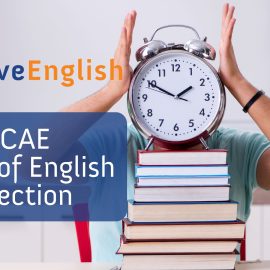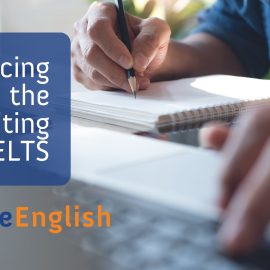
One of the things that can help you to get a better score with the grammar in the TOEFL iBT is understanding that it only tests American grammar. This means that if you have been exposed to both American and British English dialects, it would help to know some of the differences.
There is no TOEFL iBT grammar section
Where the old Paper-Based Test (PBT) had a grammar section, the iBT does not. The grammar is evaluated through the speaking and writing questions.
Here is a summary of some of the common differences between British English grammar and American English grammar to help you with the difference.
Differences in Tenses
- Americans tend to use past simple over present perfect more than the British. This is true with words like yet, already and just.
- AE- Did you eat breakfast yet?
- BE- Have you eaten breakfast yet?
- Americans tend to use have more than have got and have to more than have got to.
- Americans use subjunctive mood (they recommended he go) where British use other forms such as (they recommended that he should go).
Other differences
- American English uses toward and forward as opposed to towards and forwards.
- American English adds an s to morning, day, night, evening, weekend etc to talk about activities that you do regularly at this time.
- American English tends to avoid adding –er to sports to talk about the people who play that sport. Where BE speakers would say a footballer, an AE speaker would say a football player.
- Shall is used less in American English.
- When naming rivers, the word river usually follows the name in AE (Colorado River) but precedes it in BE (the River Thames)
- Americans use sat, seated and sitting where the British use sat in most cases (the bride’s family are sat (seated) next to the groom’s/I’ve been sat (sitting) here for 3 hours)
This list is to help you to get an idea of the kind of differences you will face. If you know any more, feel free to add them in the comments below.
Grammar is part of learning a language. If you want to learn it informally, try our Spoken English course







